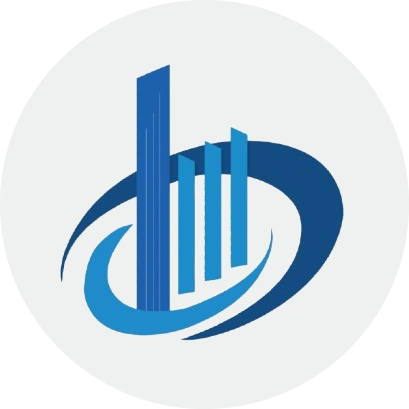In today’s interconnected world, a digital-first approach has become indispensable for businesses across industries. Companies that embrace the power of the internet are more likely to thrive, gaining visibility and influence through well-designed websites. This evolution in digital strategy has made web development one of the most critical business functions. But what exactly does web development entail?
Web development refers to the process of creating, building, and maintaining websites. It combines design, coding, database management, and content delivery to create user-centric experiences. It is not just about making a website look good—it is about ensuring that the website functions smoothly, is accessible on various devices, and offers valuable information or services to users.
A website is often the first touchpoint for potential customers, acting as a 24/7 brand representative. Therefore, investing in web development can help businesses build credibility, attract customers, and ultimately grow their operations.
Importance of Web Development
The internet has fundamentally transformed how people discover businesses and services. With over 5 billion active internet users globally, the competition to capture attention online is fierce. First impressions are crucial. Research shows that users form an opinion about a website within milliseconds of visiting it. A poorly designed, slow, or confusing website can deter visitors from engaging with your brand, while a well-developed site can leave a lasting positive impression. Here’s why web development is essential for business success:

1. Establishing Credibility and Trust
Consumers are more likely to trust a business that has a professional and user-friendly website. If your site is slow, outdated, or difficult to navigate, users may perceive your business as unreliable. Appealing website builds trust & encourages users to stay longer.

2. Driving User Engagement
Web development isn’t limited to aesthetics. The longer users spend on your website, the more opportunities you have to guide them toward your business goals, whether it’s completing a purchase, signing up for a newsletter, or filling out a contact form.

3. Supporting Business Objectives
A custom-built site tailored to your objectives allows you to showcase your products or services, provide valuable information, and communicate your unique selling points effectively. Your website Can provide leads, support, e-commerce.

4. Enhancing Search Engine Visibility
Developers use SEO best practices—such as optimizing page speed, improving accessibility, and implementing schema markup—to improve search rankings, leading to more organic traffic. Web development and search engine optimization (SEO) go hand-in-hand.

5. Maintaining a Competitive
Edge
Businesses that invest in web development gain a competitive edge by offering superior user experiences. Customers are more likely to choose a business that provides a smooth, intuitive website experience over one that offers a clunky, confusing interface.
Core Services in Web Development
Web development involves a range of services designed to meet different business needs. These services help create a comprehensive online presence that reflects your brand and serves your customers effectively.
Technologies and Tools in Web Development
Modern web development relies on a variety of programming languages, frameworks, and tools. These technologies enable developers to create feature-rich, scalable, and high-performing websites.
JavaScript: Adds interactivity and dynamic functionality to web pages.
PHP: A server-side scripting language commonly used for web applications.
Python: Known for its readability and versatility, Python is used for both back-end development and data-driven applications.


Laravel: A popular PHP framework known for its clean syntax and robust features.
APIs: Allow websites to integrate external services, such as payment processors, social media platforms, and analytics tools.
Guest Blogging: Publishing content on reputable websites helps you reach new audiences and build authority.

The Web Development Process
Developing a website is a multi-stage process that involves careful planning, execution, and optimization. Each stage plays a crucial role in delivering a functional and user-friendly product.

1. Discovery
The discovery phase involves gathering information about the client’s business goals, target audience, and project requirements. This helps developers understand the scope of the project and create a roadmap for development.

2. Planning
During the planning phase, developers create wireframes and user flows to outline the site’s structure and navigation. This step ensures that all stakeholders have a clear understanding of how the website will function.

3. Design
Designers create visual mockups of the website, including its layout, color scheme, typography, and imagery. The goal is to create an intuitive user interface (UI) and a positive user experience (UX).

4. Development
Developers write the code that brings the design to life. Front-end development focuses on the visual and interactive aspects of the site, while back-end development handles server-side functionality, databases, and security.

5. Testing
Before the website goes live, it undergoes thorough testing to identify and fix any bugs. This includes performance testing, cross-browser compatibility testing, and mobile responsiveness testing.

6. Deployment
In the process of releasing, installing, & configuring software, applications into a live environment, ensuring functionality, security, & efficiency for users or businesses.

7. Post-Launch Support
Ongoing support is essential for maintaining the website’s performance and security. Developers may provide updates, troubleshoot issues, and implement new features as needed.
Benefits of Professional Web Development
Investing in professional web development offers numerous benefits, including:
- Increased Brand Visibility: Optimized websites rank higher on search engines, attracting more organic traffic.
- Enhanced User Engagement: Interactive features and seamless navigation encourage users to explore your site.
- Higher Conversion Rates: A well-designed website builds trust and guides users toward taking desired actions.
- Long-Term Cost Savings: Quality development reduces the risk of technical issues, minimizing the need for expensive repairs.
- Scalability: Professionally developed websites can be easily updated and expanded to accommodate future growth.
Web Development : FAQs
A professional website is essential to establish credibility, showcase your offerings, and serve as a platform to attract and convert customers.
We specialize in creating custom websites tailored to your unique business needs while ensuring a seamless user experience.
Yes, all our websites are responsive, meaning they look and perform great on desktops, tablets, and smartphones.
We create e-commerce websites, corporate sites, blogs, portfolio websites, and more based on your requirements.
The timeline depends on the complexity of the project, but we ensure timely delivery without compromising on quality.
Absolutely. We optimize your website to rank well on search engines, ensuring it’s easy for your target audience to find you.
Yes, we provide post-launch support and maintenance services to keep your website updated and secure.











